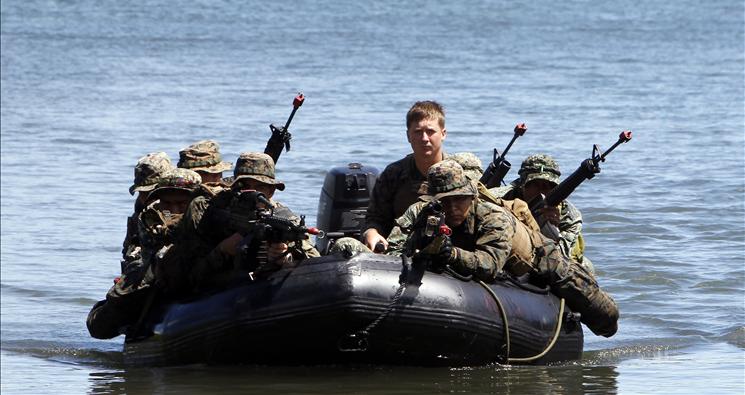Military Voting Rights Case to be Appealed to the Supreme Court
Ohio’s Attorney General has decided to appeal a federal appeals court decision on a military voting rights law to the U.S. Supreme Court. The decision by the lower court could have far-reaching and disastrous affects on the voting rights of the men and women our armed forces.
On Friday, the 6th Circuit Court of Appeals upheld a district court ruling that halted the implementation of a series of early voting laws in Ohio that would have provided members of the military three extra days to vote early, in-person before this year’s election. Ohio has filed an emergency motion to the Supreme Court requesting that the law be allowed to go into effect as the case proceeds.
The ACLJ filed an amicus brief with the 6th Circuit in this case, making the simple argument that Ohio’s “decision to provide military and overseas voters with a minor accommodation due to their unique circumstances is reasonable and fully consistent with the United States Constitution.”
While both the legislation and ensuing litigation have become quite complex, leading some “fact checkers” to incorrectly label and explain both the law and the lawsuit, it is important that everyone understand the disastrous effects that the Obama campaign’s lawsuit could have on military voting rights, not just in Ohio but nationwide.
First, some of the key facts: Prior to the enactment of the series of legislative changes now at issue, all Ohio voters were given about a month prior to the election to cast their ballot in person before Election Day. The changes to Ohio’s voting laws only deal with the three days preceding the election, so regardless, everyone in Ohio still has about a month to cast their ballots early, and of course all registered voters can choose to cast their ballot on Election Day itself.
The problem that the Ohio legislature sought to address was threefold. 1) Allowing everyone in the state to vote early up until the day before Election Day did not allow any time for election officials to compare rolls and ensure that voters were not allowed to vote a second time at their normal polling location on Election Day (most early voting takes place at centralized locations, not regular polling locations). 2) There was no uniform early voting hours during the weekend before a Tuesday election. Each of Ohio’s 88 counties set their own early voting hours and procedures for that time period, which could lead to wide discrepancies around the state. 3) Military voters face unique situations that often require deployment, reporting to bases, or other situations with little to no notice, and their voting rights must be protected.
The Ohio legislature then set uniform standards for early, in-person voting to end the Friday before Election Day. It also extended early voting for military personnel for the last three days before the election.
The Obama campaign filed a lawsuit arguing that giving military personnel these three extra days to vote in-person early is “entirely arbitrary” and has “no legitimate justification" in the law because doing so “treats similarly situated Ohio voters differently.”
This argument could roll back decades of military voting rights laws both federally and at the state level across America. This is not just a mere matter of Ohio law; it is being appealed to the Supreme Court, and thus any ruling would affect military voting rights nationwide. As Ohio noted in its emergency filing to the Supreme Court, the court’s ruling below “does not respect the need to specially accommodate military voters and their families. Indeed, the court discounts almost any protections for military voters unless they are deployed.”
This is precisely the concern voiced by 15 non-partisan military and veteran groups when they intervened in this case. The men and women of our armed forces enjoy, and deserve, special consideration to ensure that they have every opportunity to vote. As we said in our amicus brief, “the decision in this case may impact a host of federal, state, and local legislation around the country that provides accommodations to military personnel and their families.”
As we also noted in our brief, “The Supreme Court has repeatedly emphasized that, in many respects, military personnel and civilians are not similarly situated given the unique demands of military life.” Federal, state, and local laws have long recognized this fact and provided solutions to ensure that military personnel have every opportunity to vote. Our brief argued, “Courts have also observed that the unique nature of military life justifies legislative accommodations for military personnel that are not extended to civilians,” and that this particular military voting rights law provides such a “constitutionally sound” accommodation.
To hold, as the Obama campaign argues, that our men and women in uniform do not deserve these special considerations, that providing them is “entirely arbitrary,” and that there is “no legitimate justification” for recognizing and addressing the unique situation that the brave members of our military face with regarding to protecting their right to vote would have disastrous affects on the numerous military voting rights laws that have been passed both federally and at the state level.
We will continue to keep you informed as this litigation continues. Sign our petition urging President Obama to drop this lawsuit that could set dangerous precedent limiting military voting rights.
